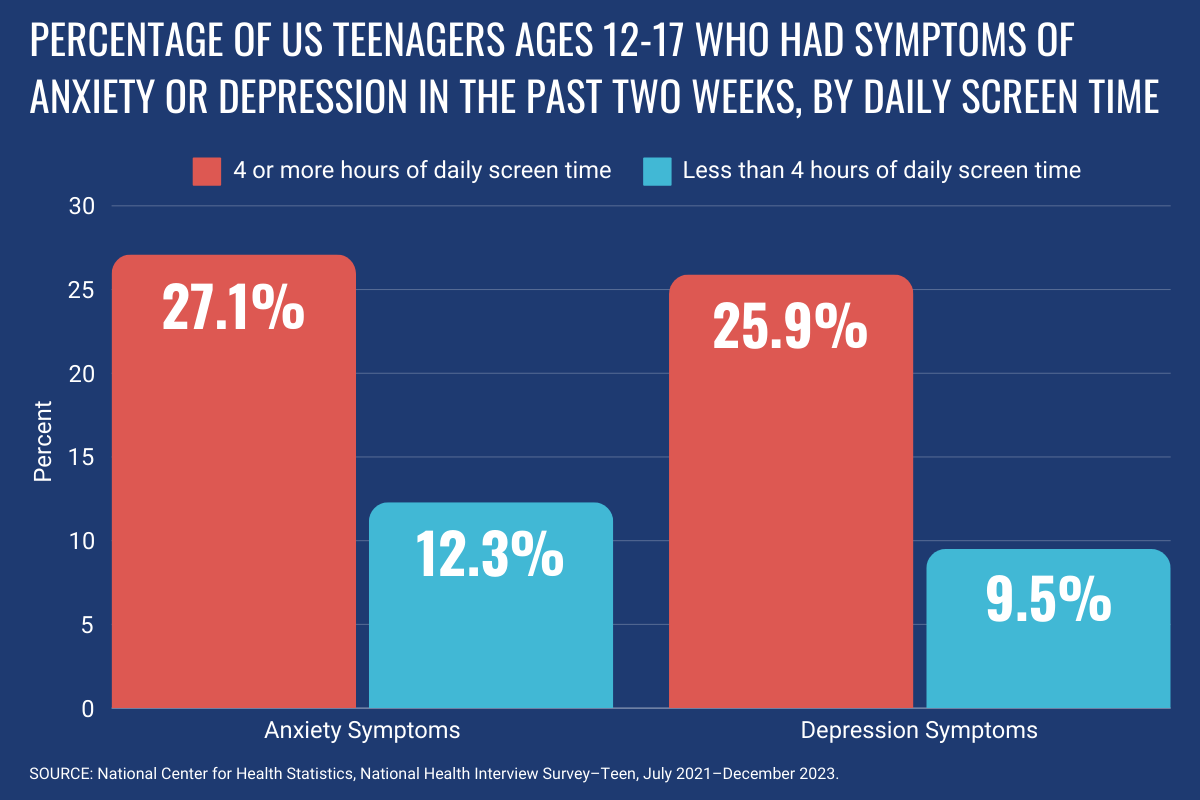4 or More Hours of Daily Screen Time Linked to Higher Anxiety, Depression in Teens
Teenagers who spend four or more hours a day in front of screens are more likely to experience anxiety and depression, according to a new report from the Centers for Disease Control and Prevention’s National Center for Health Statistics.
The report highlights findings from a national online survey of teenagers ages 12 to 17. The teens were asked about their screen time on a typical weekday, excluding time spent doing homework.
Key findings include:
- Between July 2021 and December 2023, half of the teens surveyed had four hours or more of daily screen time (50.4%).
- 22.8% of teens had three hours of screen time, 17.8% had two hours, 6.1% had one hour, and 3% had less than one hour.
- Black non-Hispanic teenagers were most likely to have four hours or more of daily screen time (60.4%) compared with teenagers in other racial and ethnic groups.
- Teenagers who had four or more hours of daily screen time were more likely to have had anxiety symptoms in the previous two weeks (27.1%) compared with teenagers with less than four hours of daily screen time (12.3%).
- Teenagers who had four or more hours of daily screen time were more likely to have had depression symptoms in the previous two weeks (25.9%) compared with teenagers with less than four hours of daily screen time (9.5%).

“As technology and screens continue to develop, their influence on the lives of children changes, making it increasingly important to expand our understanding of the patterns of screen time use overall and among selected subgroups,” the report states.
The impacts of screen time and social media use on the mental health of young people have been drawing increased scrutiny from health experts. U.S. Surgeon General Vivek Murthy, MD, issued an advisory last year stating that although more research on the topic is needed, “the current body of evidence indicates that while social media may have benefits for some children and adolescents, there are ample indicators that social media can also have a profound risk of harm to the mental health and well-being of children and adolescents.”
ACHI has created a video for parents and caregivers detailing how to use the parental controls on mobile devices to limit screen time and social media access. This and other resources are available on our Social Media and Youth Mental Health topic page.
Legal Disclaimer:
EIN Presswire provides this news content "as is" without warranty of any kind. We do not accept any responsibility or liability for the accuracy, content, images, videos, licenses, completeness, legality, or reliability of the information contained in this article. If you have any complaints or copyright issues related to this article, kindly contact the author above.
